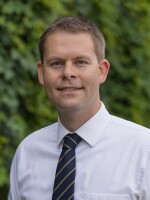St. Louis Mayor Lyda Krewson has announced a plan to distribute $64 million in federal aid intended to bolster the city’s response to the coronavirus. The plan, which Krewson said she’ll submit to the Board of Aldermen for revisions and approval, includes $2.5 million for contact tracing: to hire 25 people and invest in technology.
On Monday’s St. Louis on the Air, host Sarah Fenske talked with St. Louis Alderwoman Cara Spencer, D-20th Ward, who chairs the city’s Health and Human Services Committee. Spencer believes 25 people are not nearly enough, pointing to guidance from the National Association of County and City Health Officials that recommends as many as 150 people working in such a capacity for a city of St. Louis' size and demographics.
Spencer said fewer than a dozen people are employed by the city in a contact-tracing role today.
“We have to have a robust system in place,” said Spencer, who has also announced a run for mayor. “[Testing and tracing] are the two most important things we can be doing right now to protect the public health and safely reopen our economy.
"This is not an attack on our health department, who is doing a fairly good job with the tools they have, but what we’re calling for is to ensure that our team, our health department, has the adequate tools they need to adequately trace the spread of COVID-19 through our community.”
Acting health department director Dr. Fred Echols said the city — at this time — is handling the coronavirus outbreak with the resources it has. And despite Spencer's concerns, he feels confident the city has sufficient staff. However, he said there’s a potential for a spike in cases with the recent number of social gatherings over Memorial Day weekend and now with protests.
“As individuals participate in these activities, we continue to encourage them to be safe, because COVID-19 is in our environment. So we want to make sure they are doing their best to adhere to the preventative measures that we talk about every day,” Echols said.
Franda Thomas, the health department’s communicable disease bureau chief, said there are many challenges to contact tracing. She said there’s a stigma associated with communicable diseases, and as a result, people are fearful of giving out their personal information.
“Some people are actually afraid that they will not be able to return to work, or if they are able to go into quarantine, their job is protected,” she said. “But they also feel like, ‘Well, I might not be able to get paid.’ So these are some very real situations that a lot of people find themselves in.”
While Alderwoman Spencer said the city has been too slow to ramp up its contact tracing effort, Thomas mentioned that the city is actively hiring contact tracers. And, Thomas said, it only takes about a week to train someone to solely do contact tracing.
Marissanne Lewis-Thompson contributed to this report.
“St. Louis on the Air” brings you the stories of St. Louis and the people who live, work and create in our region. The show is hosted by Sarah Fenske and produced by Alex Heuer, Emily Woodbury, Evie Hemphill, Lara Hamdan and Joshua Phelps. The audio engineer is Aaron Doerr.
Send questions and comments about this story to feedback@stlpublicradio.org.





